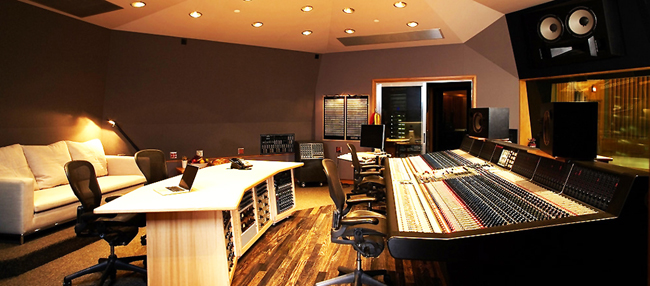Whether you’re an artist, producer, label owner or personal manager, working in a studio is part of the job. But it can also be one of the more expensive endeavors you encounter. So that you can make the most of it and use studio time wisely, Music Connection asked studio executives, including owners, managers, directors and VPs of operations, to answer a few questions. We believe that the information these professionals offer is not only useful; it could help you make the record you want at a price you can afford.
CAPITOL STUDIOS
Paula Salvatore, VP of Operations
Hollywood, CA
http://capitolstudios.com

For over half a century Capitol Studios has been a staple of the recording industry. Iconic artists like Frank Sinatra, Nat King Cole and the Beach Boys first gave life to its rooms, and to this day major icons of popular music continue to record there. As VP of Capitol Studios since the early ‘90s, Paula Salvatore is an integral part of recording sessions. Her client list includes Paul McCartney, James Taylor, Tony Bennett and Barbra Streisand, to name a few. Prior to her time at Capitol, Salvatore managed Sound City (the studio in David Grohl’s documentary) for almost 10 years.
What Are Your Duties?
I manage the day-to-day operations and try to make sure that everyone is happy. All projects come through me so I can determine what is needed and what the rates will be.
What’s Your Biggest Challenge?
The biggest challenge is balancing everyone’s interests. I act as the liaison between the studio, engineers, staff and clients to ensure that everything is done to everyone’s satisfaction. I want people to have a memorable experience, so I treat every project as if it’s my only one.
How Can Clients Get Good Rates?
The best rates are for blocks of time––a “lock-out” situation. Additionally, if a client is flexible and can be “on call,” in case of a cancellation, they’ll get an even bigger break.
What Are The Most Common Wastes of Studio Time?
Not being prepared is the most common one. It’s one thing to be creative and in the moment, but everyone must be on the same page to make that work. Artists who don’t have a producer sometimes don’t know how to get what they want and they go haywire. Our staff will try to help them, but it’s not the same as having a producer oversee the session.
Do You Have an Internship Program?
We do, but it’s being restructured by Universal. In the past we’ve used interns from a variety of schools. The most important thing they learn is studio etiquette. For example, engineers need to realize that it’s a client-based service industry and they have to be happy with being told what to do. They need to learn when to speak and, more importantly, when not to speak.










